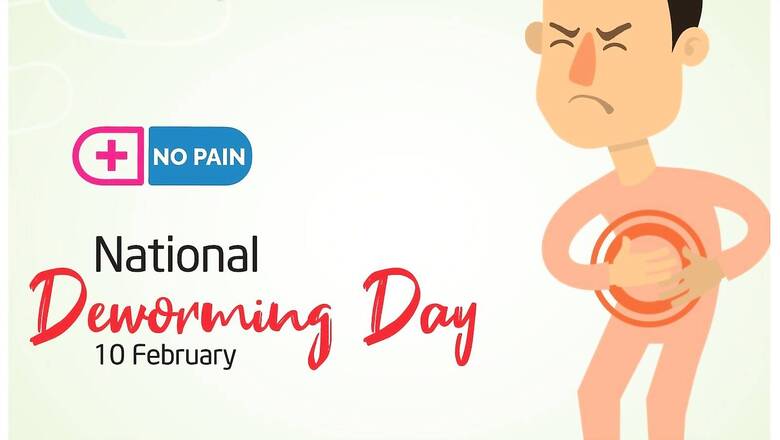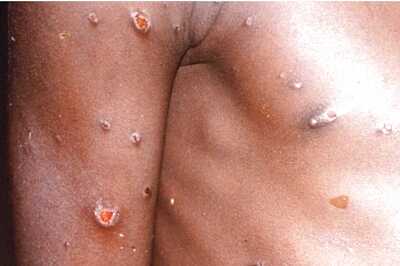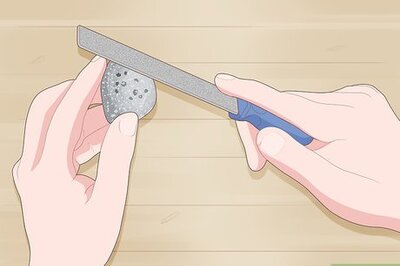
views
NATIONAL DEWORMING DAY 2023: Worm infections in kids have become a major public health concern in India. The disease tends to disrupt children’s nutrition and also makes them at a high risk to develop malnourishment, anemia, and impaired physical or mental development. According to the World Health Organization (WHO), this infection affects impoverished communities that have poor access to clean water, sanitation and hygiene. Every year February 10 is observed as National Deworming Day to create awareness about worm infections among children.
What is worm infection?
Children often complain about stomach aches and one of the leading causes of the problem could be intestinal parasites. These worms tend to live in the intestine feeding on their host’s nutrition. While some worm infections can be easily treated, others might require medical intervention.
Types and symptoms of worm infection
The most common types of warm infections are:
- Tapeworm infectionIt is a condition caused by tapeworm eggs or larvae. The symptoms of the disease can include jaundice, vomiting, loss of appetite and malnutrition, among others.
- Roundworm infectionThis infection, also called ascariasis, is caused by a type of roundworm. These worms feed on the host’s body in order to mature from eggs. They can then reproduce and also grow up to 30 cm. The common symptoms of roundworm infection are diarrhea, dry cough, fever, and passing worms with stools.
- Pinworm infectionPinworm infection causes excessive itching around the anus which leads to restlessness and trouble sleeping. It can also result in painful urination.
- Hookworm infectionChildren contract hookworm infection when they are exposed to contaminated soil. This can cause fatigue, anemia, coughing, and wheezing.
Prevention
- Maintain good hygiene and sanitation in the place where you live or frequently visit.
- Bathe every day and wash your hands at regular intervals. Also, always follow safe sanitation practices.
- Always wash fruits and veggies before consumption.
- Cook or reheat food before eating. Note to thoroughly cook or boil raw meat.
- Avoid contact with soil that could be contaminated or covered with human feces.
- Drink purified water and immediately seek medical help if the body develops any symptoms of infection.
Read all the Latest Lifestyle News here




















Comments
0 comment